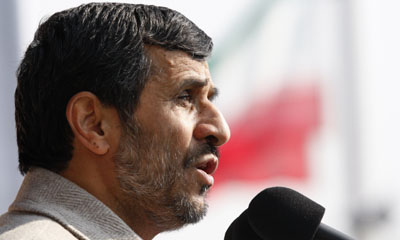New York, February 11, 2010—The Committee to Protect Journalists condemns the Iranian government’s attempt to slow down the Internet and block text messaging ahead of expected demonstrations during today’s 31st anniversary of the Islamic Revolution.
In the days leading up to the anniversary, Iranian authorities have taken measures designed to control the flow of information in and out of the country, CPJ research has found. This comes on the heels of announcements by the government and opposition leaders that their supporters would take to the streets in large numbers.
On Wednesday, Iranian authorities announced that they will suspend Google’s e-mail services inside the country and would be introducing a national e-mail service in the near future, according to international news reports. On Sunday, an Iranian official also announced that connectivity to the Internet would be slow for about a week, citing technical problems, according to Agence France-Presse. A slow connection prohibits journalists from easily uploading photos or videos.
The same official also noted that text messaging for mobile phones had been disabled, according to local and international news reports. Opposition activists and local journalists have relied heavily in the past on text messages and Internet connectivity to coordinate their plans and to relay breaking news. The government has previously responded by disrupting Internet connectivity and disabling text messaging for days on end.
In the past week, Tehran has also detained an undetermined number of journalists, including seven individuals who reportedly work for the Prague-based U.S.-funded Farsi-language Radio Farda, according to local news reports. Radio Farda has denied having any Iran-based employees. In a statement, the Iranian Ministry of Intelligence referred to them as “spies” and said that they were “elements of a counterrevolutionary Zionist satellite station.” They join at least 47 journalists that were in custody as of February 1, according to CPJ research. While many of the detained journalists have not yet been charged with a crime, others have been charged with capital offenses, and could potentially be sentenced to death.
“We condemn yet another attempt by the government to censor news and information from Iran at a politically sensitive time,” said Mohamed Abdel Dayem, CPJ’s Middle East and North Africa program coordinator. “We call on the authorities to restore full and unfettered access to the Internet and mobile communications for all Iranian citizens.”
In an effort to offset what it has termed “counterrevolutionary” forces among protesters and journalists covering the unrest, the government has invited some 400 international journalists to cover pro-government commemorations of the Islamic Revolution, according to the Christian Science Monitor and local Iranian news outlets. The last time the government invited large numbers of foreign journalists to report from Iran was during last year’s June presidential election.
“Unfortunately, when those journalists reported the news as they saw it unfold, Iran expelled some of them and refused to extend visas for others,” Abdel Dayem said.
